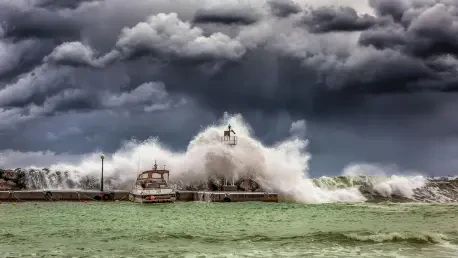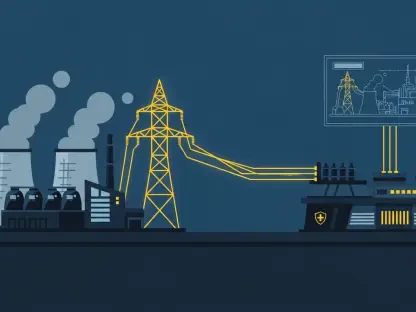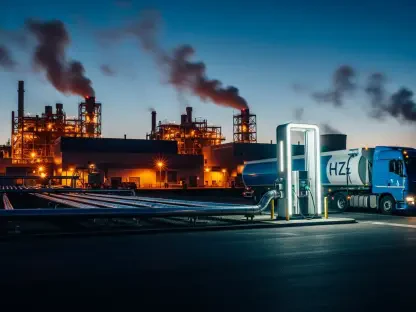In the wake of an unprecedented weather event that struck Milwaukee with a ferocity rarely seen, the city faced a so-called 1000-year flood in August, an occurrence so extreme that it should statistically happen only once in a millennium, leaving a profound impact on the community. This devastating deluge submerged neighborhoods, disrupted lives, and left an indelible mark, raising urgent questions about the role of climate change in intensifying such disasters. Smoky air lingered over the summer months as well, compounding the sense of crisis. Yet, despite these stark warnings from nature, there remains a troubling disconnect at the federal level, where policies seem to sidestep the scientific consensus on climate change. This glaring oversight prompts a deeper examination of whether the lessons from Milwaukee’s ordeal are being heeded or ignored by those in power. As the impacts of a warming planet become impossible to dismiss, the voices of concerned citizens grow louder, demanding accountability and action.
Local Impacts Demand Urgent Attention
The sheer scale of the flooding in Milwaukee serves as a grim reminder of how vulnerable communities are to the escalating effects of a changing climate. Torrents of water overwhelmed infrastructure, turning streets into rivers and forcing residents to confront the fragility of their surroundings. Beyond the immediate destruction, the event underscored a pattern of increasingly frequent and severe weather anomalies across the region. Reports from local authorities highlighted that such extreme rainfall events, once considered rare, are becoming disturbingly common, aligning with predictions from climate models about intensified precipitation due to rising global temperatures. The smoky haze that blanketed the area for weeks added another layer of hardship, affecting air quality and public health. These tangible impacts have galvanized public concern, with many in Milwaukee recognizing that these are not isolated incidents but part of a broader trend linked to human-driven environmental changes.
Equally troubling is the emotional toll on residents who now live with the constant threat of the next disaster. The 1000-year flood did more than damage property; it shattered a sense of security for countless families. Community members have voiced frustration over the lack of adequate preparation and response mechanisms, pointing to systemic gaps in addressing climate-related risks. Conversations in neighborhood forums reveal a shared anxiety about future storms and a growing realization that local efforts alone cannot suffice without broader policy support. The persistent smoky conditions over the summer only heightened this unease, as health concerns mounted alongside fears of recurring floods. This collective experience in Milwaukee mirrors a national struggle to grapple with the immediate consequences of a warming world, where the evidence of climate change is no longer a distant projection but a lived reality that demands swift and decisive intervention from all levels of governance.
Federal Policies Under Scrutiny
At a time when Milwaukee reels from nature’s fury, federal policies on energy and environmental protection appear misaligned with the urgent needs of affected communities. A controversial Department of Energy report, criticized by over 85 leading climate scientists for lacking scientific rigor, has fueled debate by seemingly downplaying the consensus on climate change. Critics argue that this stance prioritizes fossil fuel interests, such as coal and fracking, over sustainable alternatives, ignoring the violent weather patterns witnessed locally. This policy direction, endorsed by key figures in the administration, stands in stark contrast to findings from authoritative bodies like the Intergovernmental Panel on Climate Change, which affirm the human role in driving global warming through greenhouse gas emissions. The disconnect between scientific evidence and governmental action has sparked widespread concern among environmental advocates and citizens alike.
Further compounding the issue is the apparent dismissal of long-term environmental sustainability in favor of short-term economic gains for a select few industries. Milwaukee’s recent flood serves as a potent symbol of what is at stake when policies fail to address the root causes of climate change. Public sentiment, as reflected in local discussions, reveals a deep frustration with leadership that seems to turn a blind eye to the mounting evidence of a crisis. The rollback of protective regulations, justified by questionable data, threatens to exacerbate the very conditions that led to the city’s inundation. This approach not only undermines efforts to transition to cleaner energy sources but also places an unfair burden on future generations, who will inherit the consequences of today’s inaction. As the debate continues, the call for accountability grows stronger, with many urging a reevaluation of priorities to ensure that the lessons from such catastrophic events are not wasted.
A Path Forward Through Collective Action
Reflecting on the aftermath of Milwaukee’s historic flood, it becomes evident that the event was a clarion call for immediate and unified efforts to combat the escalating climate crisis. The devastation left behind was a stark illustration of nature’s power, but it also ignited a resolve among community members to push for meaningful change. Looking back, the frustration with federal inaction was palpable, yet it spurred local initiatives to raise awareness and advocate for stronger environmental protections. The smoky summers and flooded streets were not just temporary setbacks; they were catalysts that drove home the urgency of addressing greenhouse gas emissions and transitioning away from fossil fuels.
Moving ahead, the focus must shift to actionable solutions that bridge the gap between local experiences and national policy. Investing in resilient infrastructure to withstand extreme weather, promoting clean energy alternatives, and amplifying the voices of affected communities stand as critical steps. Collaboration between scientists, policymakers, and citizens can pave the way for innovative strategies that prioritize sustainability over outdated practices. Milwaukee’s ordeal should serve as a blueprint for other regions, highlighting the need for proactive measures before disasters strike. By learning from past challenges, society can build a future where the warnings of climate change are not ignored but met with determination and foresight.









